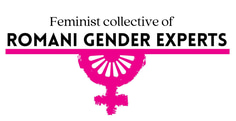“Building Equality Together” 9th International Roma and Traveller Women’s Conference Organized by Council of Europe
REFLECTIONS
Milena Reljic, Imola Malek, Terezia Rostas and Miljana Cabrilovski
12/14/20232 min read


Since 2007, the Roma Women’s conferences have been a crucial platform for Roma and Traveller women to address global issues impacting their lives and families. These gatherings have fostered an environment for mutual awareness and the exchange of experiences among Roma and Traveller women. The 9th International Roma and Traveller Women Conference aimed to facilitate dialogue between civil society representatives of Roma and Traveller Women and their counterparts from various minority groups. The focus was on building alliances to establish a coordinated support and monitoring system for implementing key standards set by the Council of Europe, other international organizations, and national authorities advocating for gender equality. This approach considers the intersectionality and multiple forms of discrimination faced by Roma and Traveller women. Organized in collaboration with the Council of Europe and the Government of North Macedonia, the 9th International Roma Women’s Conference took place between November 30 and December 1, 2023, in Skopje. The event revolved around crafting a draft Committee of Ministers recommendation to member states on equality for Roma and Traveller women and girls. This initiative falls under the supervision of the Steering Committee on Anti-Discrimination, Diversity, and Inclusion (CDADI) and the Committee of Experts on Roma and Traveller Issues (ADI-ROM).
Since we believe that there should be a cooperation between intergovernmental institutions and Roma feminist gender equality professionals, four of our members have attended this conference. Beside the Council of Europe working on the general report which will be published on their website, here are some takeaways from our members:
The conference brought together Roma women activists from across Europe, each with diverse experiences and a wide range of activities.
It focused on key strategic priorities for the period 2018-2024, including gender equality, the prevention of gender-based violence, political participation, and the challenges faced by girls and women asylum seekers.
National and international actors shared perspectives, presenting both positive examples of Roma women and the various challenges they confront.
Emphasizing a gender-sensitive approach, the conference underscored the importance of achieving strategic objectives and implementing international norms to promote gender equality.
The discussions highlighted the crucial role of gender equality in upholding the rule of law, democracy, and sustainability.
A recognized need for the development of new standards was acknowledged.
The overarching message from the conference was that "Equality can be built only together," emphasizing the necessity of building alliances within the Roma Women Network.
The event also stressed the importance of breaking away from a 'slavery mentality' ingrained by centuries of oppression and dispelling the notion that 'we are not good enough.'
Participants from different countries provided insights into the current situations and challenges faced by Roma women, discussing how they can actively contribute to advancing gender equality.
In the “Building Alliances between women’s networks-Ensuring legal and policy standards are applied for Roma women and girls” workshop Terezia Rostas shared the core essence of the RTransform project, detailing its results and the impact it has made in England over the project's two-year duration.
Personal conversations during the conference revealed a notable divergence in opinions and perspectives between younger and older generations. This natural generational difference was underscored, recognizing that the current experiences and issues are perceived differently by distinct age groups, leading to the presence of age barriers in certain organizations. The challenge of reconciling these generational perspectives was particularly evident in discussions surrounding age limits, with older generations expressing concerns about their exclusion based on age.
